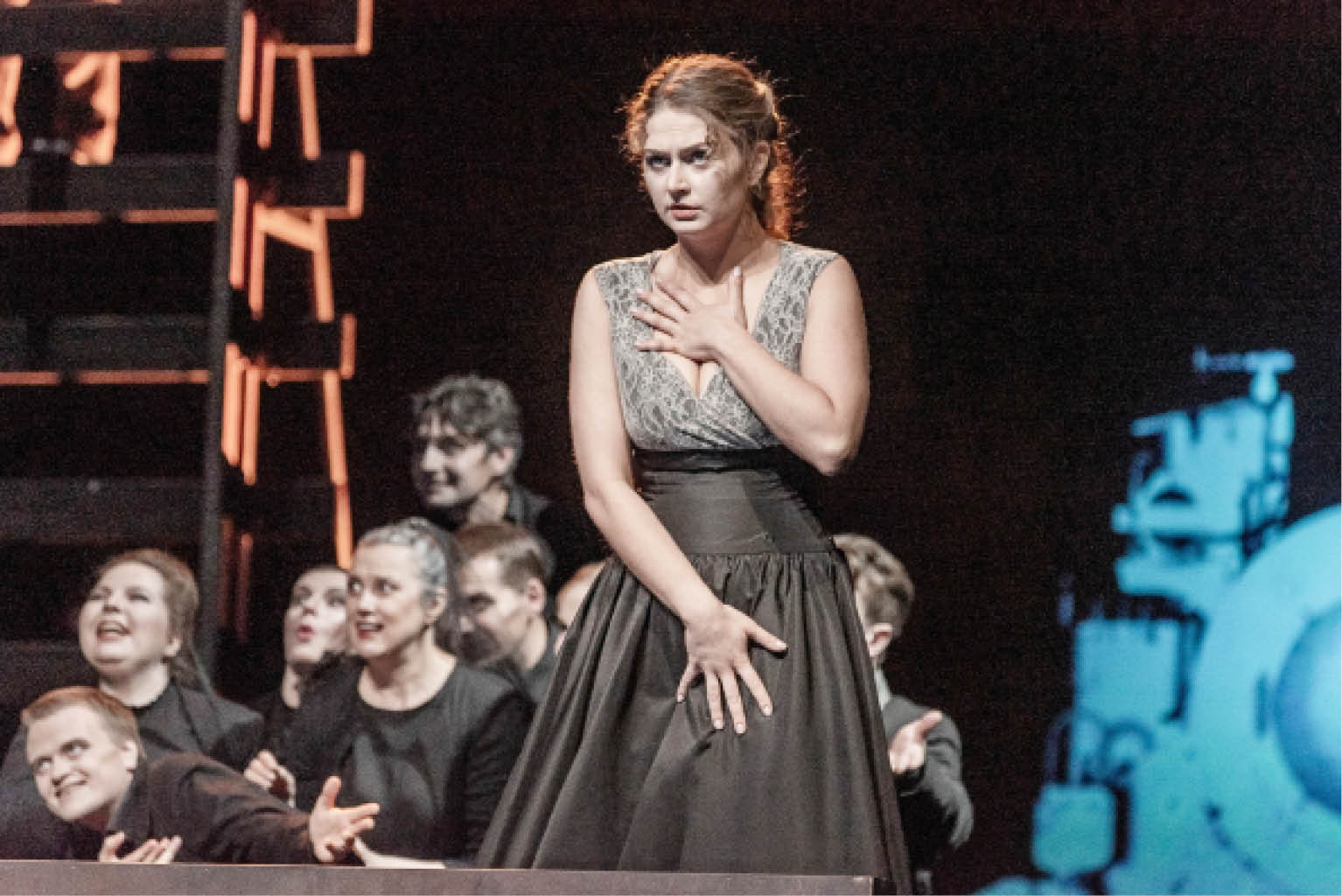Theatrium: A peep into Prussian Theatre
It was a feast of the best of theatrical showcase which spanned the entire week of May 21-26, 2019 in the tiny but socio-culturally rich city of Klaipeda, in Lithuania, near the Baltic States. Regulars and invited theatre professionals from around the world, of which I am one, are fed with performances after performances which […]

‘Sons of a bitch’ effectively condensed a 100 years into a few hours
It was a feast of the best of theatrical showcase which spanned the entire week of May 21-26, 2019 in the tiny but socio-culturally rich city of Klaipeda, in Lithuania, near the Baltic States. Regulars and invited theatre professionals from around the world, of which I am one, are fed with performances after performances which define the Lithuanian theatre.
I arrived in Klaipeda not sure what to expect. I have never had any contact with Lithuanian theatre whether on paper or stage. I however, took solace in the fact that theatre speaks only one language, as long as I allow my imagination run riot, as I have fun.
The TheATRIUM, was launched three years ago but, this year, it took an international outlook with the first Lithuanian Theatre Showcase. It involved more than 32 international guests – producers, directors, critics and scholars – and has become a significant aspect of the theatrical life in Klaipeda, Lithuania and Europe in general.
The festival is a perfect mix of carefully selected Lithuanian showcases, designed to appeal to different audiences. There are 15 shows in total in the professional programme, apart from productions in the international programme segment with shows from Germany, Russia, Norway, France, South Korea, and Greece, among others.
While it would have been great to see all fifteen shows of the showcase, I, as prompted by the organisers selected eleven of such performances and ended up seeing them all. From Stabat Mater, an adaptation of August Strindberg’s ‘The Pelican’ which the young Lithuanian theatre director, Egle Kazickaite re-created into a non-verbal, physical theatre. Without a single word spoken, it held the audience spellbound for its duration.
My personal ‘dislike’ for non-verbal performances melted away, as I watched the brilliance with which the actors told their stories with well-choreographed movements. This performance is a departure from the traditional Lithuanian theatre. It is experimental and contemporary and would appeal more to the younger generation, who care less about the narratives.
In total, three other shows made a huge impression on me. ‘Therapies’, a play by Birutė Kapustinskaitė struck the right chords; excellent actors and simple movable set suitable for the narrative. The only challenge with the play, set in a hospital ward was the weakness of its text (dialogue) which if enhanced would have given it a better edge.
‘The Perfect Match’ by the Lithuanian State Drama Theatre tells the story of an estranged couple who ‘lived together unhappily’ until death came calling and they both found themselves at the gate of heaven where the only condition for their residency is ‘doing things together.’
‘Sons of a Bitch’ by the Klaipeda Drama Theatre was another masterpeice. Written by Saulius Šaltenis and directed by Eimuntas Nekrošius, with an array of talented cast which includes Darius Meškauskas, Karolina Kontenytė, Aurimas Pintulis / Vidas Jakimauskas, Regina Šaltenytė, Donatas Švirėnas / Jonas Baranauskas, Vaidas Jočys, Igoris Reklaitis, Nijolė Sabulytė, Sigutė Gaudušytė/ Justina Vanžodytė, Edvardas Brazys; the play took the audience on a journey through the history and the spirit of Klaipedia.
For 200 minutes, the play unfolds, with intermission. It premiered in 2018 before the cheering audience on a journey back to the 18th century. To that time in history when it was under the Prussian region. The play represents a successful attempt at condensing a century-old history of a nation into a few hours of action. The stagecraft was excellent. Most of the actions took place in a train station as through actions and dialogues, it deals with reminiscences of old Lithuanian pagan myths, the dark secrets of Lithuanian women and everyday life, among others. It was, however, a herculean task following the narrative properly as the language of performance, as with many of the other plays, was the Lithuanian language, without English translation for some.
Whatever the TheATRIUM’s goals were, I think it was achieved. It has shown to the world the beauty of Lithuanian theatre and the abundance of talents within its coastal bowels with young directors like Egle Kazickaite, Birutė Kapustinskaitė, both of whom I think made a very bold statement at the festival. For the very big festivals around the world, there are some very good picks from TheATRIUM, capable of thrilling global audiences.
It must be said that, besides the performances, TheATRIUM presents a perfect opportunity to meet with other professionals around the world, and of course to explore that little coastal nation of about two million people but, with such a rich theatre history.
Adesewo is the Producing Artistic Director, Arojah Royal Theatre
